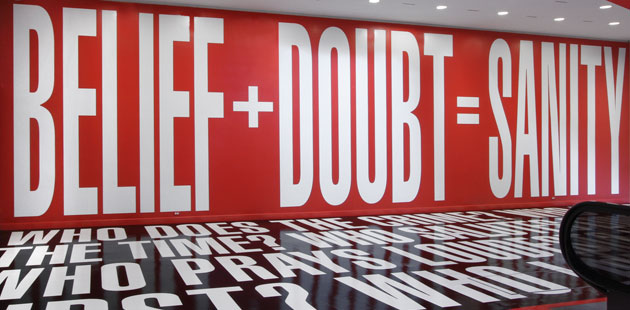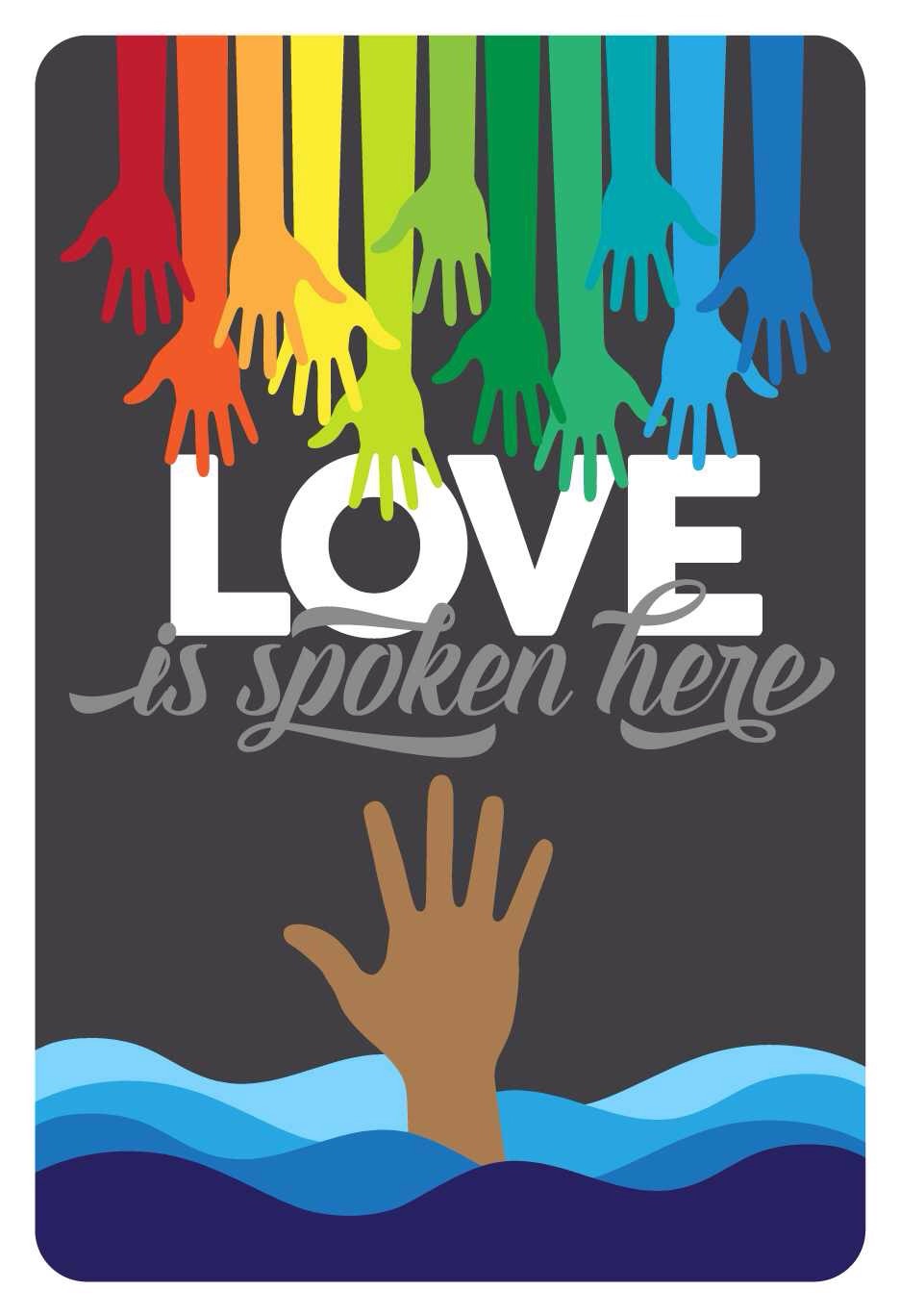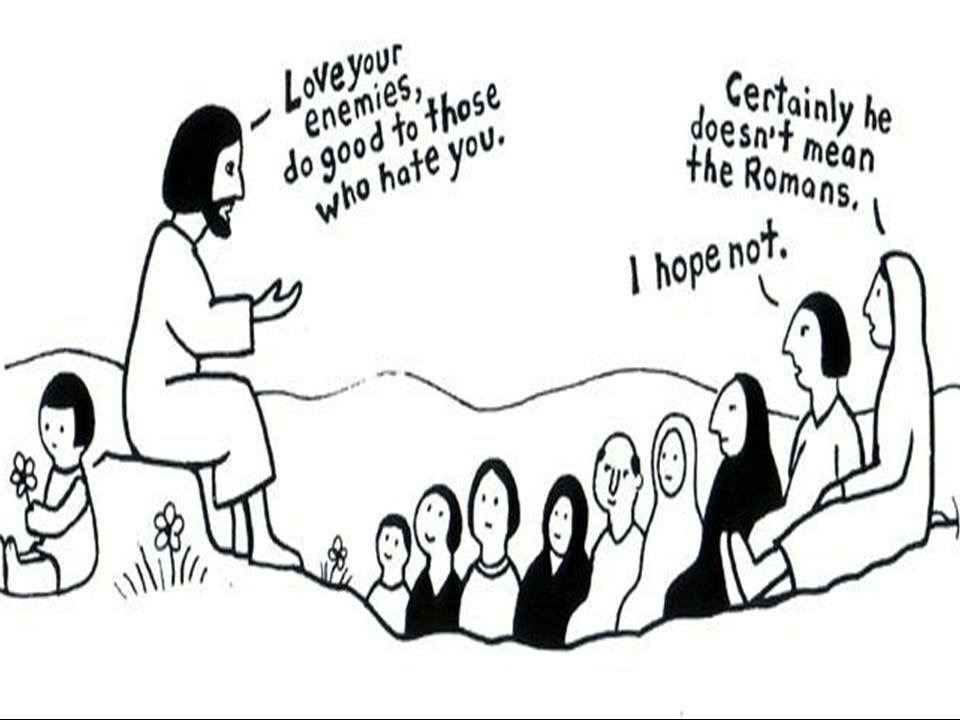A hodgepodge of thoughts about scripture, faith, and my conception of God (sparked by a question on my blog about accepting/rejecting scripture):
I know there are some Christians who take every word in the Bible as though it literally is God speaking. I'm not that literal. Sometimes scripture can challenge us, and sometimes we must challenge scripture.
“The word of God” has always been communicated and mediated through human filters. It naturally follows from that realization that some of the words we've canonized are not God’s words at all, but rather the words of men speaking in their weakness and cultural contexts--as well as their biases.
The Bible says all kinds of horrible things that men attribute to God. Just look at the Old Testament. How comfortable are you
really with the god of the Old Testament? (Especially compared to the god of the New Testament.) On a good day the god of the Old Testament is indifferent. On a bad day he is angry and on a really bad day he is genocidal. Though you have to search it out, you can find the loving God in the OT ("my hand is outstretched still") but it's a matter of discerning for yourself which scripture is most inspired and the more accurate depiction of God.
Leviticus says divorce is an abomination, eating shrimp and shellfish is an abomination and the punishment for them is stoning. It also says
homosexuality is an abomination. Yet we mortals pick and choose which scriptures we want to emphasize, accept (either literally or metaphorically) or use to beat others up with.
I can’t accept all scripture as equally inspired. Much of it rings true and resonates with my conscience and inspires me to love God and my fellow man more and better.
Some of it sets off alarm bells, which helps me recognize through Spirit what is good and true and whether it represents God. I believe each individual has the responsibility to discern for themselves, through the Spirit, truth from error--even in the scriptures. And even then,
that's a subjective (and often messy) process.
Honestly, most of the time it's not even that I choose to accept or reject individual scriptures; rather, it's about the lens I (or we) use to interpret scripture. Various Christian denominations have long disagreed about interpretation of scripture--even among themselves.
I'm in the camp that believes the most important lens Jesus showed we must ultimately use to look at scripture is the lens of compassion (and the primary commandments to love God and love our neighbor as ourselves.) If what we read insults our conscience (genocide, rape, or any other gory details that men did, supposedly in the name of God) then that is a good sign it doesn't likely reflect the compassionate God worthy of our worship.
Some people think in black and white terms that you either accept all scripture as inerrant or it cannot be trusted at all. I say that's ridiculous. There is no such thing as an inerrant or infallible standard to discern the mind and will of God. It doesn't exist. So faith--
authentic faith--is filled with all kinds of uncertainty. Uncertainty makes some people really uncomfortable so they come up with all kinds of crazy apologetic arguments with which they cloth themselves to comfort themselves. As for me,
I've learned to be comfortable with uncertainty and ambiguity and lean into that vulnerability rather than run from it. When all is said and done, it actually makes me more humble and compassionate to realize we're all in the same boat trying our best to follow our God-given moral compass. We're no better than anyone else; we're all in need of the same grace.
While some Mormons might take comfort in thinking this proves the need for prophets, the thing I've come to see is that
prophets are just as fallible as anyone else. (And
I can name some specific examples of times when instead of clearing things up, they muddied the waters even more. Hence why I put more faith and trust in individually going directly to the Source.)
History has led me to
lower my expectations of prophet-leaders, since they've arguably been wrong and misled on as many big issues as they've been right. Regardless of one's beliefs or expectations of prophets (whether very modest or completely unrealistic), one cannot escape the individual work of discerning/confirming for yourself that what you're reading/hearing actually represents the Divine will or not. One must never go on autopilot and outsource that responsibility at any time to any other individual. When all is said and done, I still like what
Brent Beal wrote:
I suspect that what we do with our individual autonomy will matter more to God than how well we follow directions. For me it comes down to whether or not I believe God wants us to paint by the numbers or to paint our own pictures? As parents, what do we value more from our four-year-olds? A paint-by-the-numbers portrait identical to what’s on the box, or a free-spirited 'Look, Mom, this is you and Dad in a rocket ship with a cow!' masterpiece?










